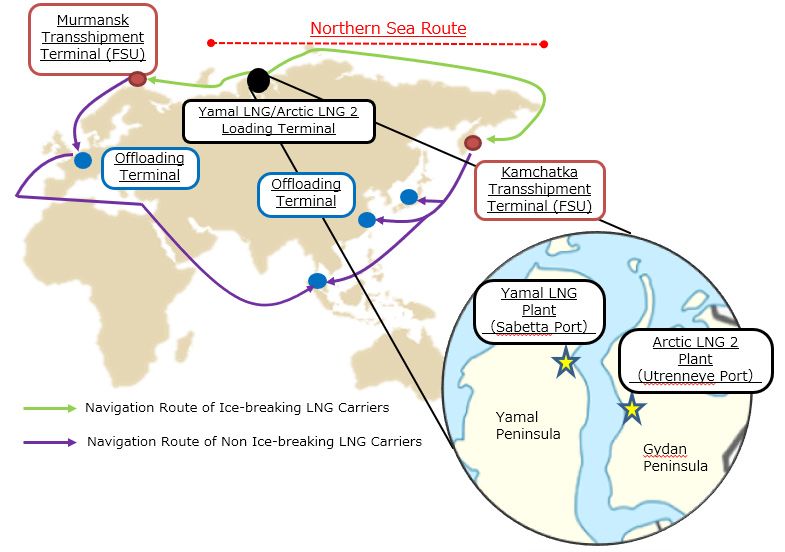Novatek’s Arctic LNG 2 project entered into long-term charter agreements for six Arc7 ice-class LNG tankers with Russia’s Sovcomflot and Japan’s Mitsui O.S.K. Lines.
As previously reported, South Korea’s Daewoo Shipbuilding & Marine Engineering will build the sextet with each carrier worth about $293 million.
With this move, Novatek has in total secured 21 ice-class vessel for its second Arctic LNG export project.
Previously, the Rusian LNG producer signed charter contracts for 15 vessels. Russia’s Zvezda yard is in charge for buidling these vessels.
Arctic LNG 2 is located on the Gydan peninsula and includes the construction of three LNG trains with a capacity of 6.6 mtpa, each.
The project utilizes a new concept using gravity-based structure platforms to reduce overall capital cost and minimize environmental footprint in the Russian Arctic.
The Russian company expects to launch the first LNG train in 2023, with trains 2 and 3 to follow in 2024 and 2026, respectively.
Beside operator Novatek, the project partners include Total, CNPC, CNOOC, and the consortium of Mitsui and JOGMEC.
Sovcomflot trio contract backlog at 4.2 billion
Russian shipping firm Sovcomflot said in a separate statement that it would take the delivery of the three 172.400-cbm ARC7 vessels in 2023.
Sovcomflot estimates the total contract backlog for these vessels, over the 30-year charter period, to be at $4.2 billion.
The carriers’ design will use SCF’s experience of safely operating Christophe de Margerie, the world’s first icebreaking LNG carrier, which has been serving Novatek’s Yamal project since 2017.
They will each feature a propulsion system comprising three Azipod units with a total capacity of 51 MW.
This propulsion system is expected to provide new vessels with increased speed and maneuverability when sailing in ice conditions, compared with icebreaking LNG carriers of the previous generation.
MOL trio
Daewoo will also deliver MOL’s trio during 2023. According to MOL, the ships will be 300 meters long with a 47 meter width.
The vessels will mainly transport LNG from the Gydan facility to the floating storage units to be installed at the transshipment terminal in Kamchatka and Murmansk via the Northern Sea Route.
MOL’s previous icebreaking LNG carriers can only sail eastbound in the Northern Sea Route during mostly summer and autumn period of time when the ice is thin.
However, the new vessels will have a narrower width, hull form optimized for ice breaking, and an increased propulsion engine output which will enable them to sail east via the Northern Sea Route all year round.
The eastbound transportation route will reduce the distance of the voyage by approximately 65% compared to the westbound route via the Suez Canal for Asian destinations, MOL said.

